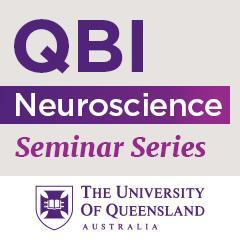Professor Anthony J Hannan, Florey Institute of Neuroscience and Mental Health : "Gene-environment interactions mediating experience-dependent plasticity in the healthy and diseased brain"
Speaker:
Professor Anthony J Hannan
NHMRC Principal Research Fellow
Florey Institute of Neuroscience and Mental Health, University of Melbourne
Title: "Gene-environment interactions mediating experience-dependent plasticity in the healthy and diseased brain"
Abstract: We have been investigating how various environmental manipulations selectively alter gene expression, cellular plasticity and associated cognitive processes and behaviours. Huntington’s disease (HD) is one of over 40 tandem repeat disorders and involves a triad of psychiatric, cognitive and motor symptoms. In a transgenic mouse model of HD we have shown that expansion of the tandem repeat encoding a polyglutamine tract of the mutant huntingtin protein leads to a spatiotemporally specific cascade of molecular, cellular and behavioural abnormalities. We have also demonstrated that environmental enrichment can delay onset of the affective, cognitive and motor endophenotypes. Environmental enrichment and physical exercise induce changes in gene expression, which exhibit temporal specificity and regional selectivity. These findings have been extended to additional environmental factors (e.g. stress), pharmacological interventions and mouse models of other brain disorders, including schizophrenia and autism spectrum disorders. These approaches may also facilitate the development of 'enviromimetics' for a variety of brain disorders known to be modulated by environmental stimuli. We have also explored the transgenerational effects of paternal environmental exposures. Our findings reveal significant experience-dependent effects on offspring via transgenerational epigenetic inheritance, which occurs via epigenetic modifications in the sperm of the fathers. We are exploring the impact of specific environmental factors, including stress and exercise, and the relevance of these discoveries in mice to human transgenerational epigenetics. Our findings, and their relevance to the proposed transgenerational inheritance of increased predisposition to various brain disorders, have major public health implications.
About Neuroscience Seminars
Neuroscience seminars at the QBI play a major role in the advancement of neuroscience in the Asia-Pacific region. The primary goal of these seminars is to promote excellence in neuroscience through the exchange of ideas, establishing new collaborations and augmenting partnerships already in place.
Seminars in the QBI Auditorium on Level 7 are held on Wednesdays at 12-1pm, which are sometimes simulcast on Zoom (with approval from the speaker). We also occassionally hold seminars from international speakers via Zoom. The days and times of these seminars will vary depending on the time zone of the speaker. Please see each seminar listed below for details.




